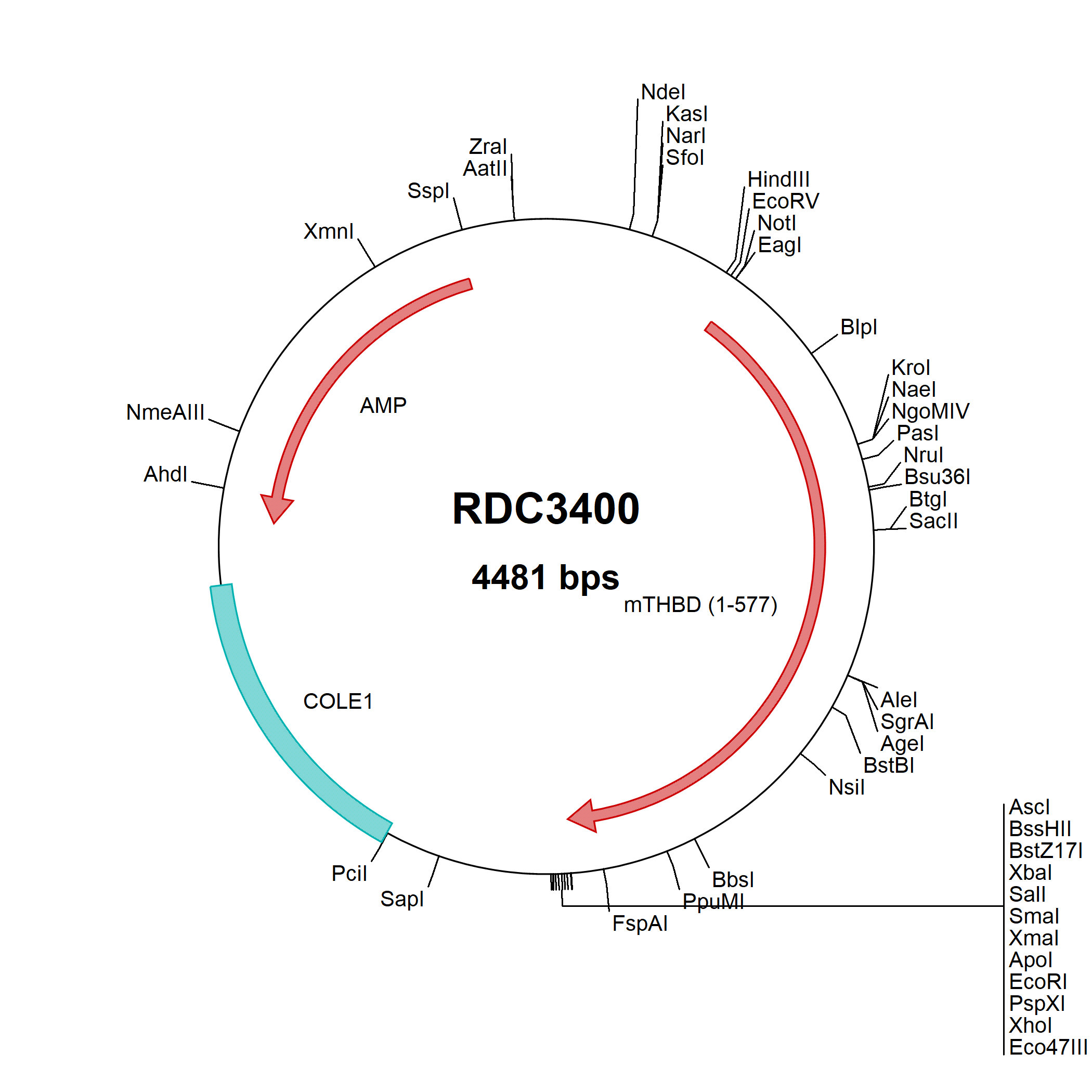Thrombomodulin/BDCA-3: cDNA Clones
Thrombomodulin (TM), also known as CD141 and BDCA3, is a transmembrane expressed on vascular endothelial cells (EC), arterial smooth muscle cells, monocytes, and macrophages. It binds Thrombin and enhances the Thrombin-mediated activation of the anti-coagulant Protein C and the anti-fibrinolytic TAFI/Carboxypeptidase B2. Thrombomodulin also inhibits the ability of Thrombin to activate several pro-coagulant proteins (e.g. Fibrinogen, Factor V, Factor XIII, PAR-1). Thrombomodulin exerts multiple anti-inflammatory effects and reduces the severity of disease involving chronic inflammation. In cancer, Thrombomodulin suppresses tumor angiogenesis, growth, and epithelial-mesenchymal transition. Soluble fragments of Thrombomodulin are elevated in the serum, urine, and synovial fluid during coagulation disorders, inflammation, and organ failure.
2 results for "Thrombomodulin/BDCA-3 cDNA Clones" in Products
2 results for "Thrombomodulin/BDCA-3 cDNA Clones" in Products
Thrombomodulin/BDCA-3: cDNA Clones
Thrombomodulin (TM), also known as CD141 and BDCA3, is a transmembrane expressed on vascular endothelial cells (EC), arterial smooth muscle cells, monocytes, and macrophages. It binds Thrombin and enhances the Thrombin-mediated activation of the anti-coagulant Protein C and the anti-fibrinolytic TAFI/Carboxypeptidase B2. Thrombomodulin also inhibits the ability of Thrombin to activate several pro-coagulant proteins (e.g. Fibrinogen, Factor V, Factor XIII, PAR-1). Thrombomodulin exerts multiple anti-inflammatory effects and reduces the severity of disease involving chronic inflammation. In cancer, Thrombomodulin suppresses tumor angiogenesis, growth, and epithelial-mesenchymal transition. Soluble fragments of Thrombomodulin are elevated in the serum, urine, and synovial fluid during coagulation disorders, inflammation, and organ failure.

